
American Crabapple
Flowering crabapples ( Malus spp.) are ornamental trees that produce showy blossoms and brightly colored fruits. Their fruits usually aren't sold by grocery stores, but you can grow and harvest crabapples from your tree to eat or add to recipes.

Flowering Crabapple Trees Knecht's Nurseries & Landscaping
Family: Rosaceae (rose) Click on images of Crabapple to enlarge. Deciduous. There are many varieties (over 700 cultivars). Heights that range from 15 - 45 ft. Crown can be very busy and produce many twigs. Flowers in the early spring. Often grown as an ornamental tree. Edible fruits are small red in color (usually), often very sour.
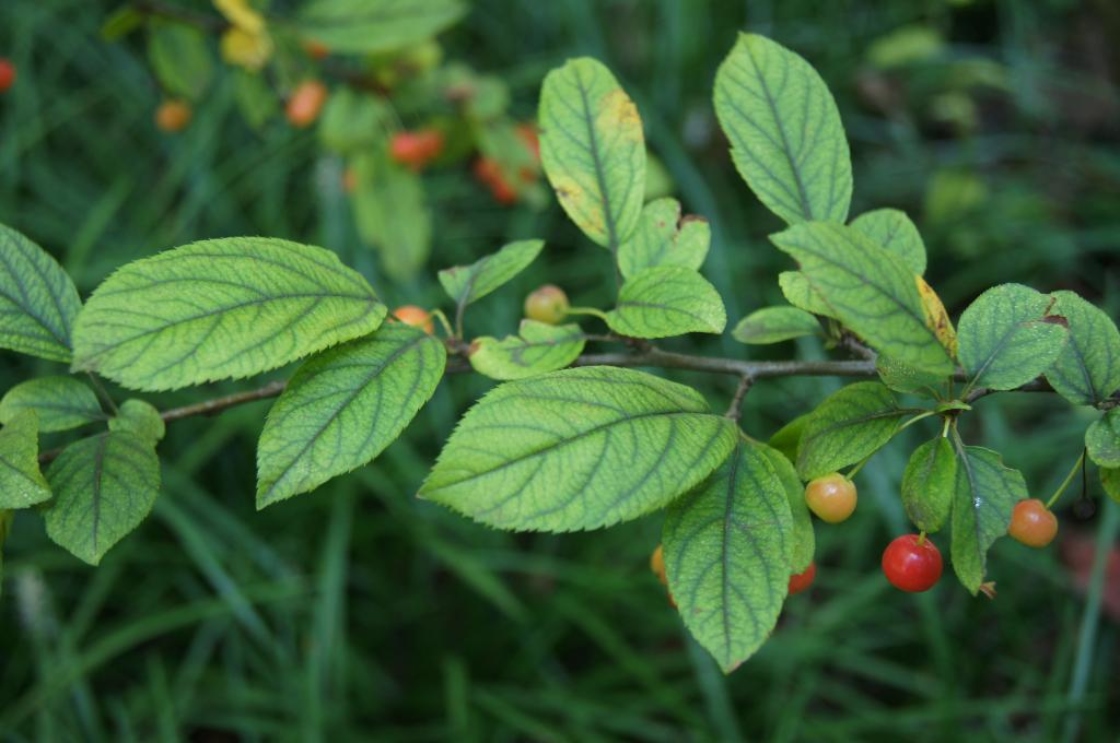
Sargent’s crabapple The Morton Arboretum
Crabapple trees have oval, green, serrated leaves that grow alternately on the branch and turn vibrant colors in autumn. Thorns may be present. In spring, the tree is covered in flowers ranging from white to purple and red. Clustering fruits form in summer and often remain on the tree into winter.
Crabapple Tree Leaf Damage r/arborists
An early harbinger of spring, crabapple trees bloom profusely in an amazing display of fragrant white or pink blossoms. Once pollinated, the summer months see crabapple trees turn to fruit production and a return to a lovely canopy of green leaves. In autumn, it makes another dramatic transformation with bright red, orange, and yellow foliage.

Crabapple ‘Robinson’ The Home & Garden Center
Malus ( / ˈmeɪləs / [3] or / ˈmæləs /) is a genus of about 30-55 species [4] of small deciduous trees or shrubs in the family Rosaceae, including the domesticated orchard apple, crab apples and wild apples . The genus is native to the temperate zone of the Northern Hemisphere . Description Flowering crabapple blooms
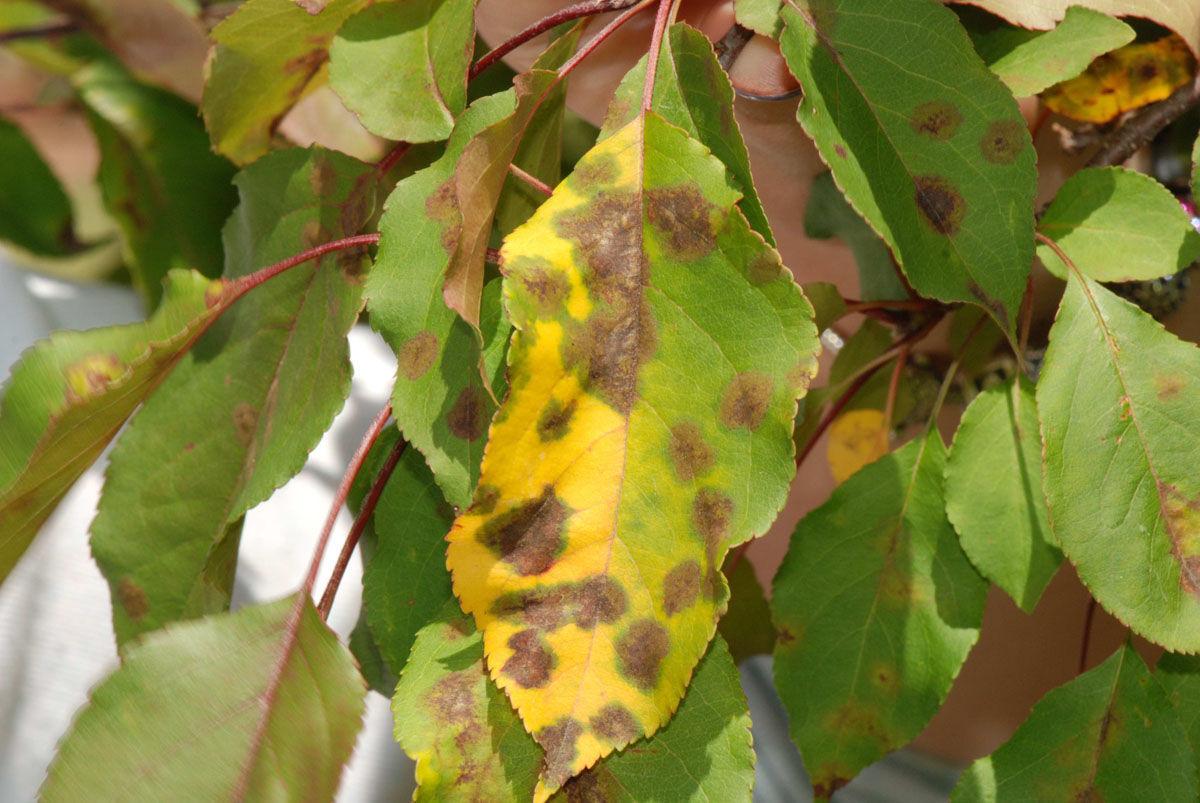
Stuart Hawbaker Crabapple scab causes leaves to drop early
Floweirng crabapple trees have showy spring flowers and brightly colored fruit from late summer through fall. Many grow 15 to 20 feet tall and wide, but there are also smaller dwarf varieties.. good fall leaf color, and attractive fruit. Even better, they resist apple scab and other common diseases that have beset crabapples in the past.

13 Stunning Crabapple Trees That Add LongLasting Color to Your
Plant Type: Deciduous Tree Hardiness Zones: 4-8 (USDA) Sun Exposure: Full sun to partial shade Soil Type: Well-draining soil Soil pH: 6.0-7.0 (slightly acidic to neutral) Maturity: 20-30 years Height: 20-30 feet Spacing: 15-20 feet Bloom Time: Spring Flower Color: White, pink, red, purple Native Area: North America, Europe, and Asia
crabapple leaf identification
Adirondack Janet Mesic Mackie This crabapple variety's long-lasting, deep pink buds are known to open into nearly pure white flowers. Its blooms develop into abundant orange-red fruits that hang on into early winter. Adirondack's leaves are green most of the year before turning yellow in fall.
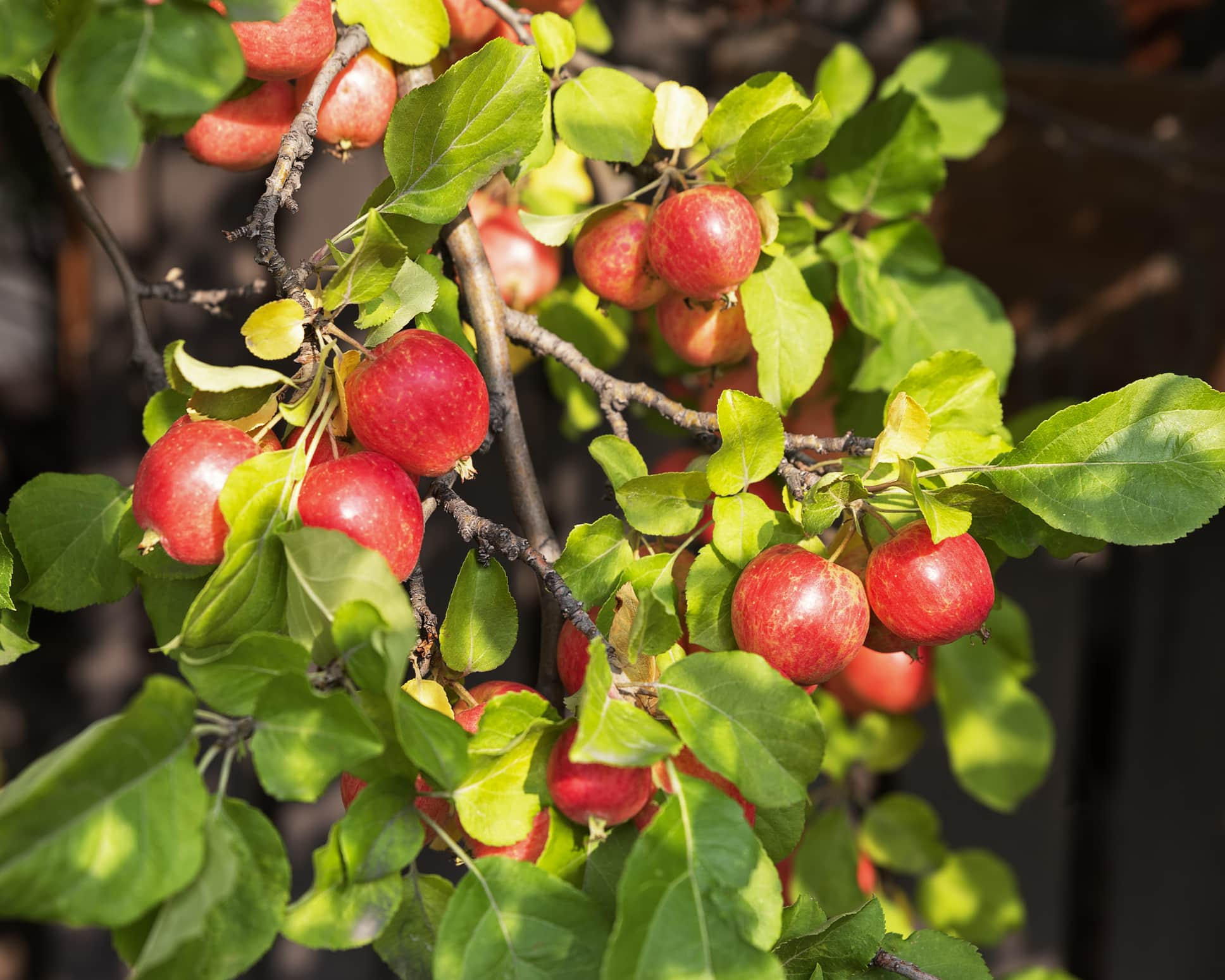
Callaway Crabapple Tree Just Fruits and Exotics
Malus angustifolia, also known as southern crabapple, narrow leaf crabapple, or wildcrapple ³ is a member of the rose family (Rosaceae) and is a eudicot. Southern crabapple is a small tree that typically grows to be between 20 and 35 feet tall ². Its trunk reaches 8 to 10 inches in diameter ¹. Its 1 to 3 inch leaves are oblong with a blunt.

CRABAPPLES RESISTANT TO APPLE SCAB AND JAPANESE BEETLE IN INDIANA
Water well, and mulch. Be prepared to irrigate if necessary in the first year. Support is important when it comes to crabapple tree care. A 4ft (1.2m) tree stake knocked in at an angle, with the tree tied to its stake about 2ft (60cm) above the ground is ideal. Check tree ties regularly and tighten if necessary.
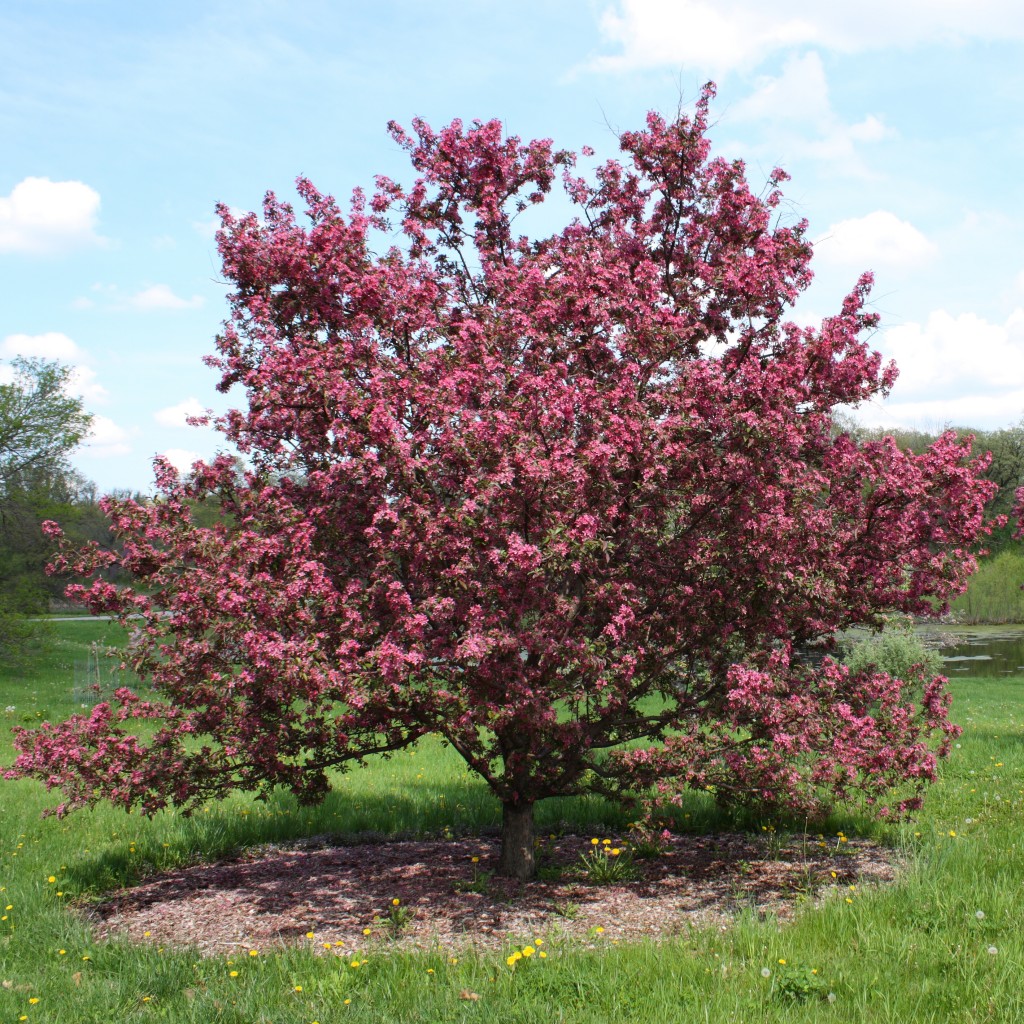
How to Grow Crabapple Growing and Caring for Flowering Crabapples
Physical description Crabapple trees are stiffer in form and spinier than the common apple. The plants are deciduous and often have attractive fall foliage. The simple ovate leaves are serrated along the margins and are borne alternately along the twigs.
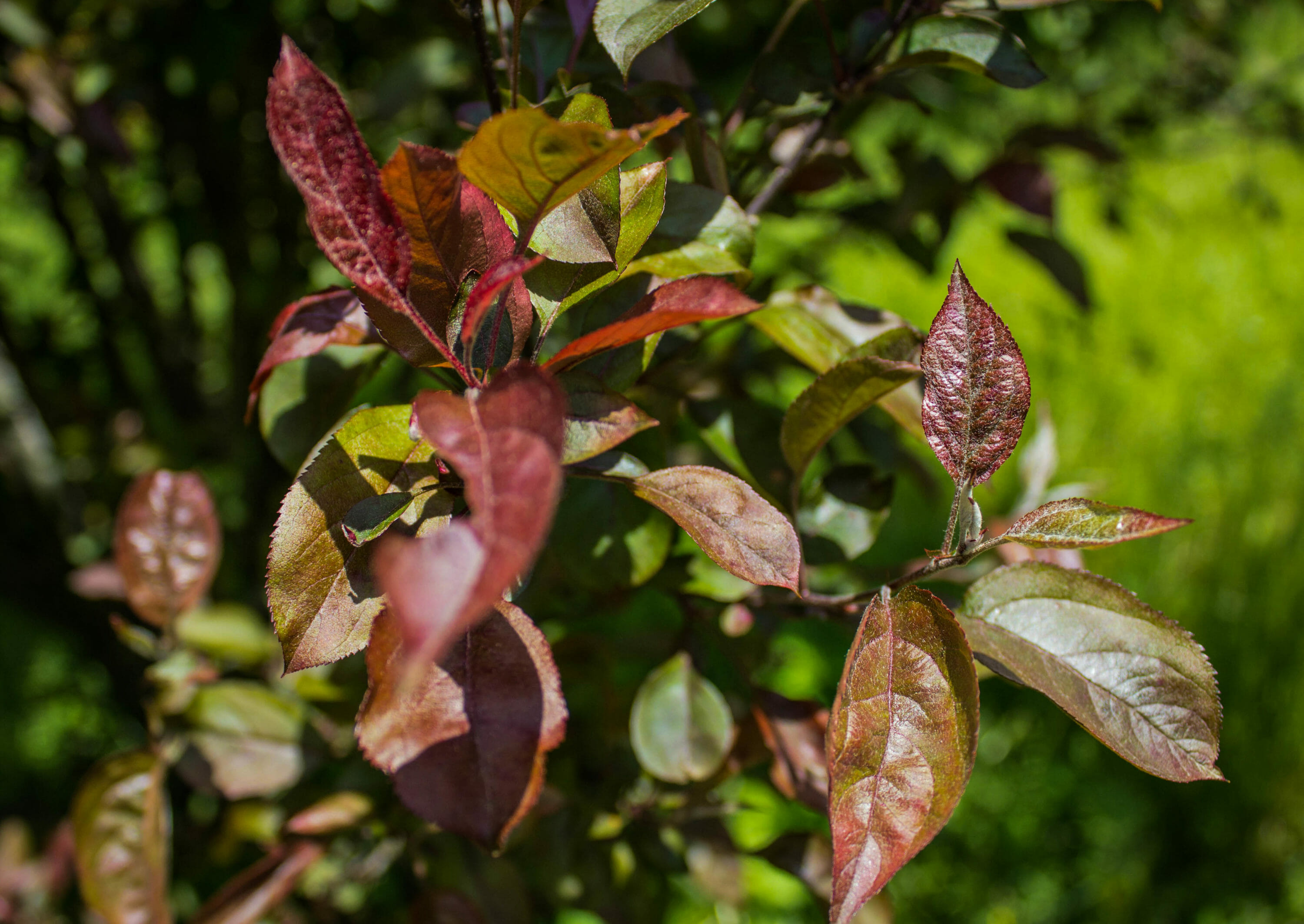
Prairie fire crabapple foliage Halka Nurseries
What if they never even KNEW? My ebook, The Edible Front Yard Garden will show you how! What is a Crabapple? A member of the Malus genus, these trees are related to the standard orchard apple that you're familiar with. A flowering crabapple shows off every spring with beautiful blossoms and does not fruit.

Wild Sweet Crabapple Purdue Fort Wayne
The crabapple is a small, deciduous tree found primarily in the temperate zone of the Northern Hemisphere. These trees typically grow to be 4-12 m tall, and possess distinct white, pink, or red petals when in bloom. Crabapples are self-sterile, and thus completely rely on insect pollinators to transport their pollen.
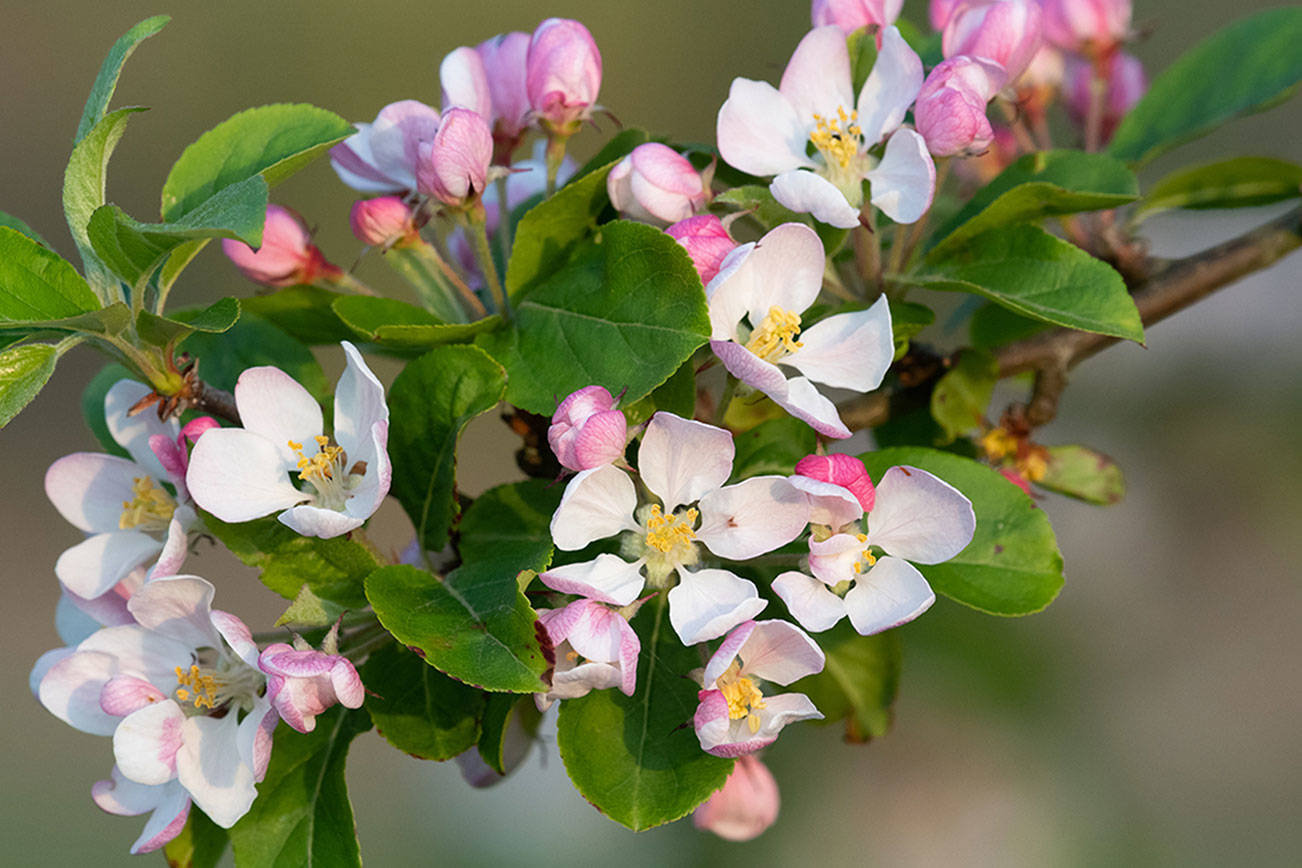
Six flowering crabapple trees you can fall in love with
Crabapple trees are normally planted from potted nursery specimens in the fall. They have a moderate growth rate of 12 to 24 inches per year, and a 5-gallon potted tree may take three to five years or even longer before it flowers heavily.

Crabapple Trees Archives Knecht's Nurseries & Landscaping
Crabapple trees (botanical name Malus) are like miniature apple trees ( Malus domestica ). The smallest crabapple trees can be small shrub-like bushes around 4 ft. (1.2 m) tall. Larger crabapples can grow to between 20 and 30 ft. (6 - 9 m). Most crabapple trees thrive in zones USDA 4 through 8.

Crabapple ‘Robinson’ The Home & Garden Center
Crabapples are small deciduous trees native to temperate Asia and North America. In the spring, the trees are covered with pretty pink or white blossoms that often have amazing fragrances. Most crabapples are edible to some degree, depending on the size and sweetness of the fruit.